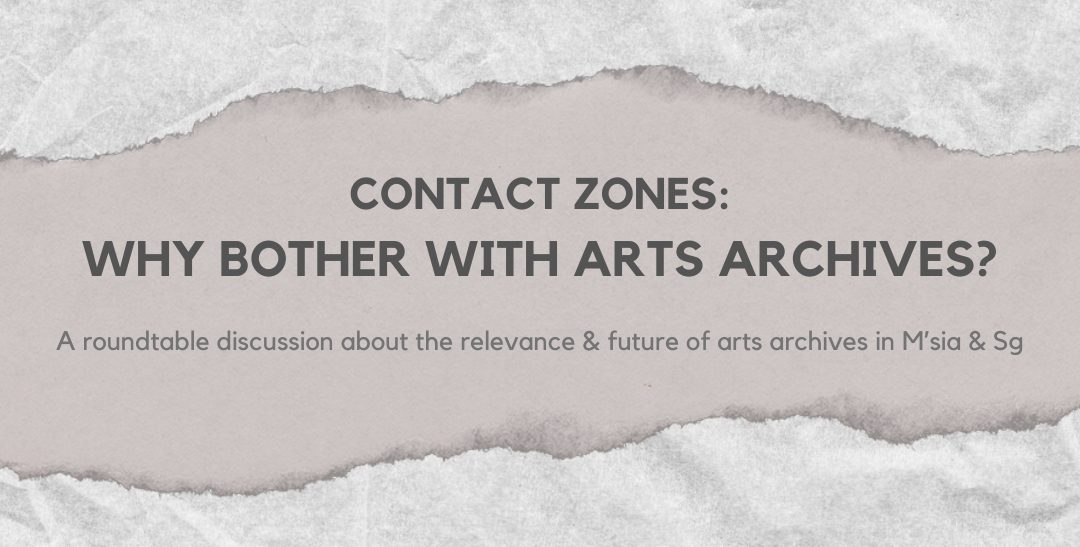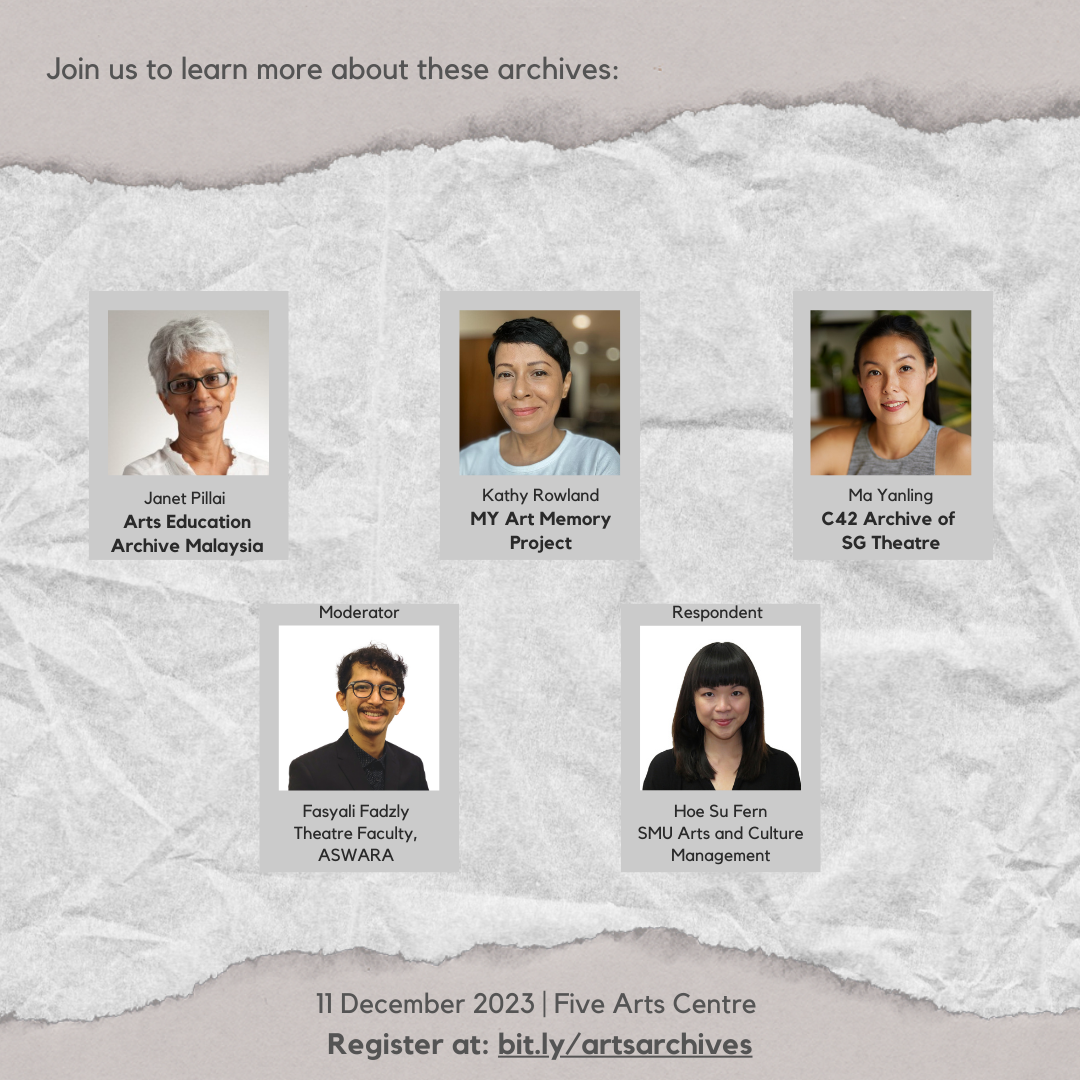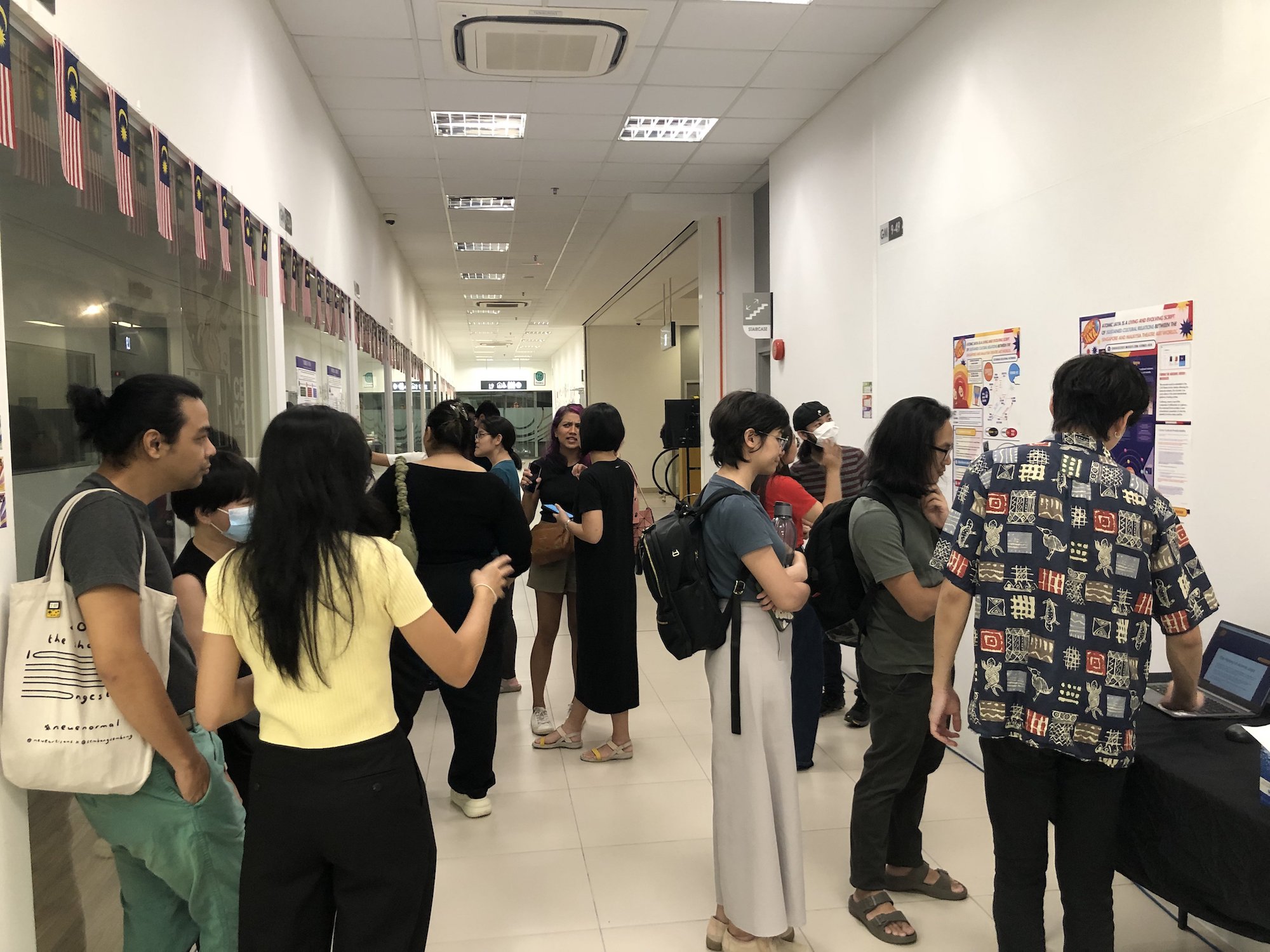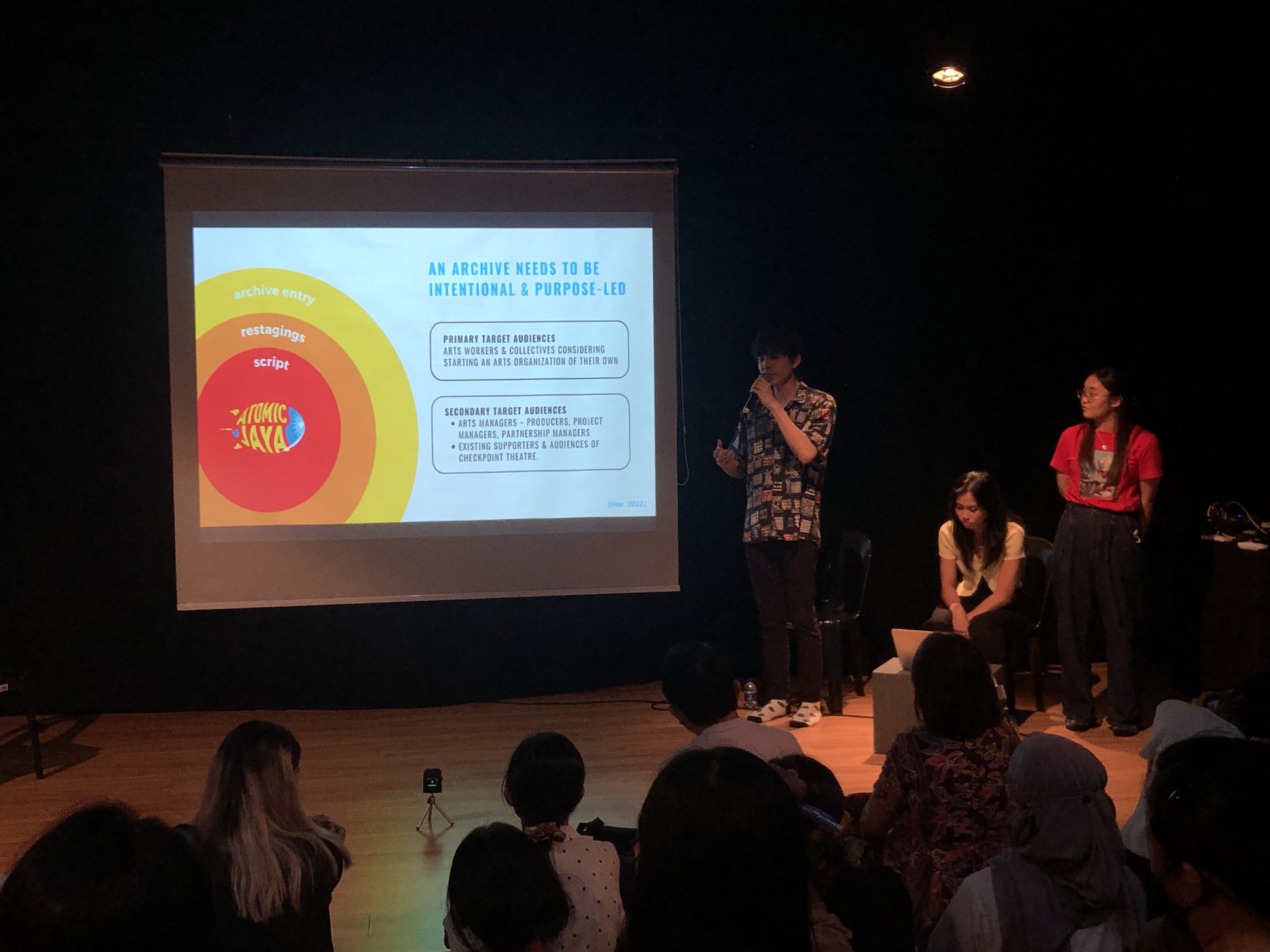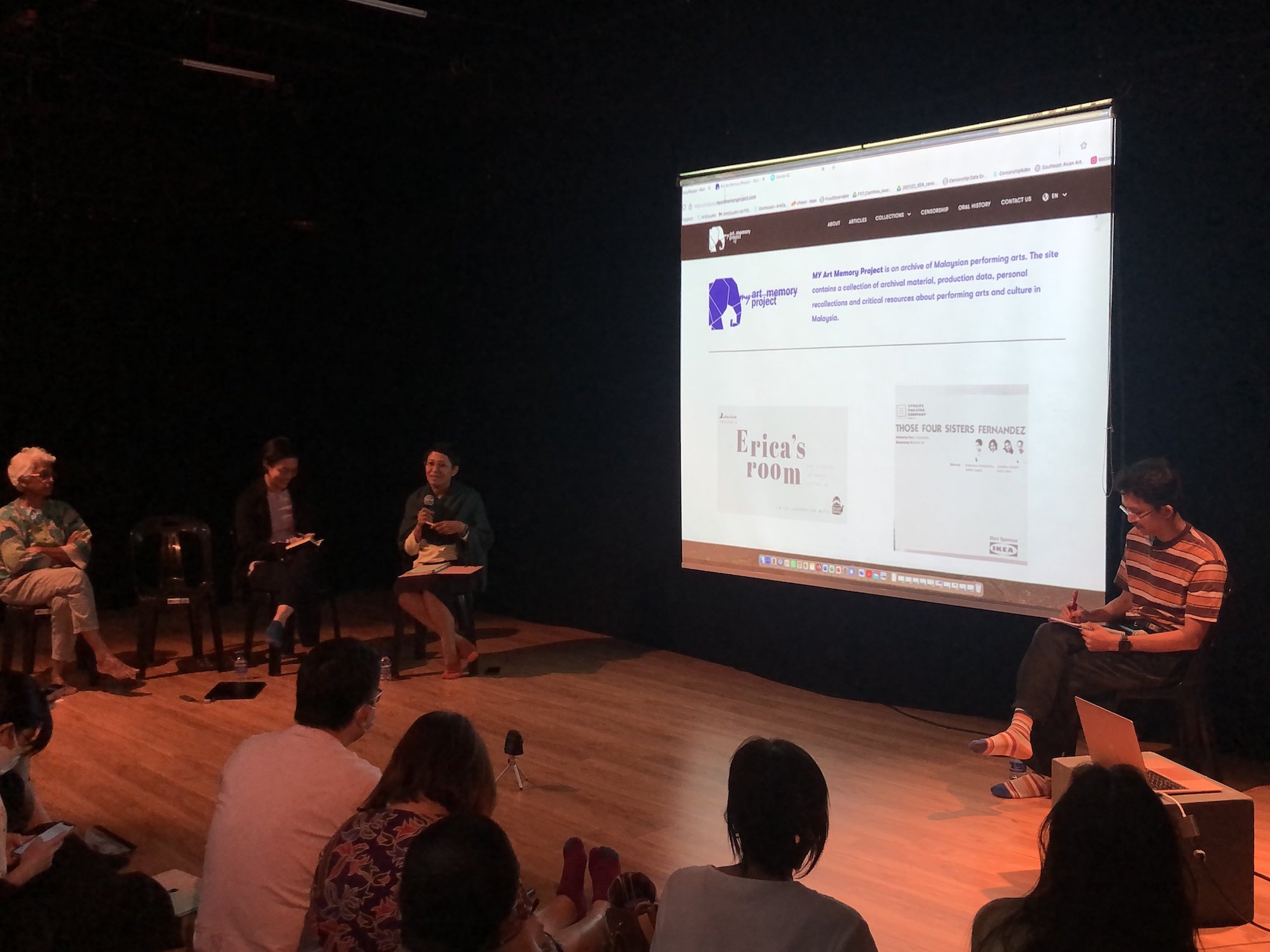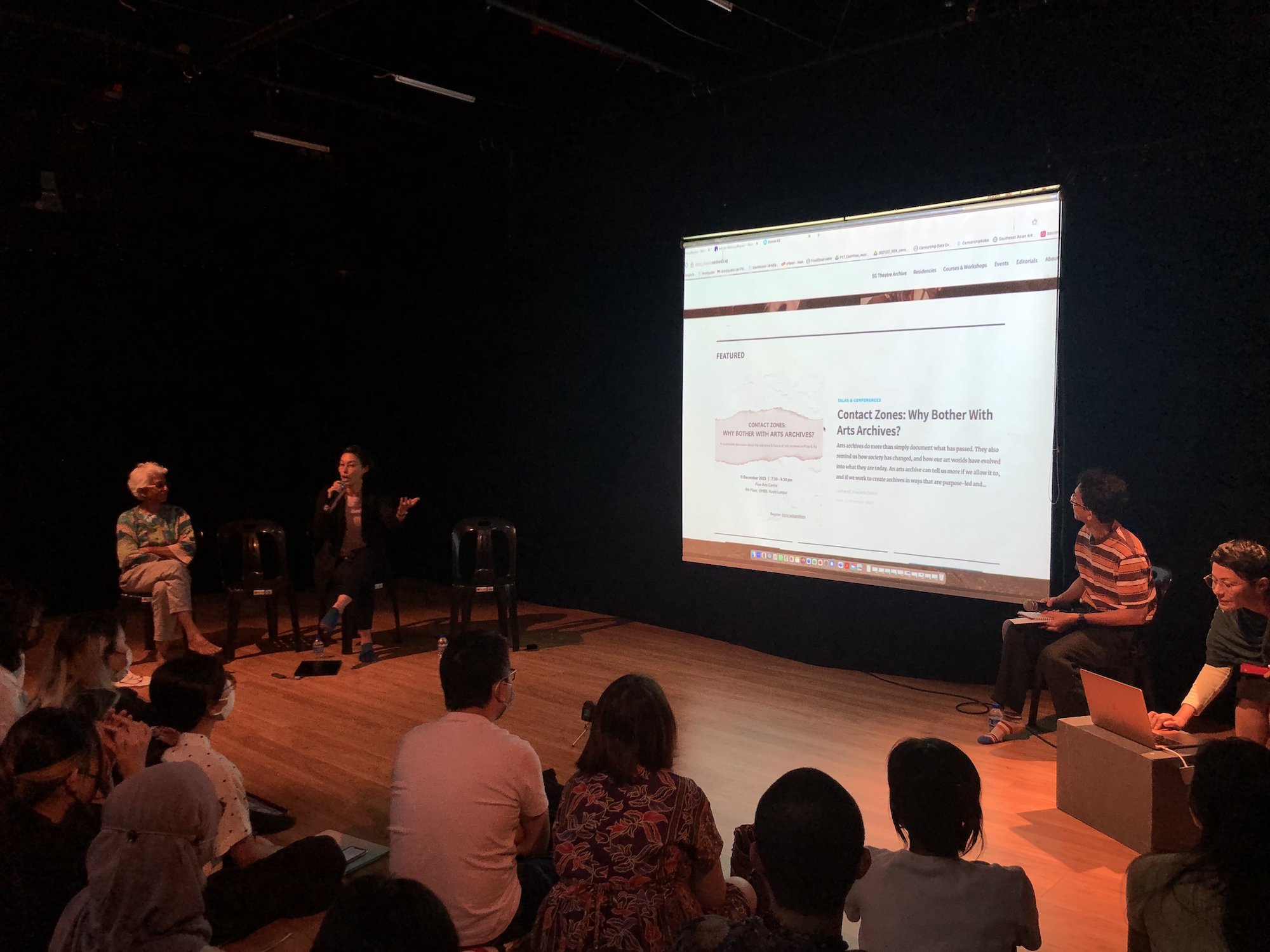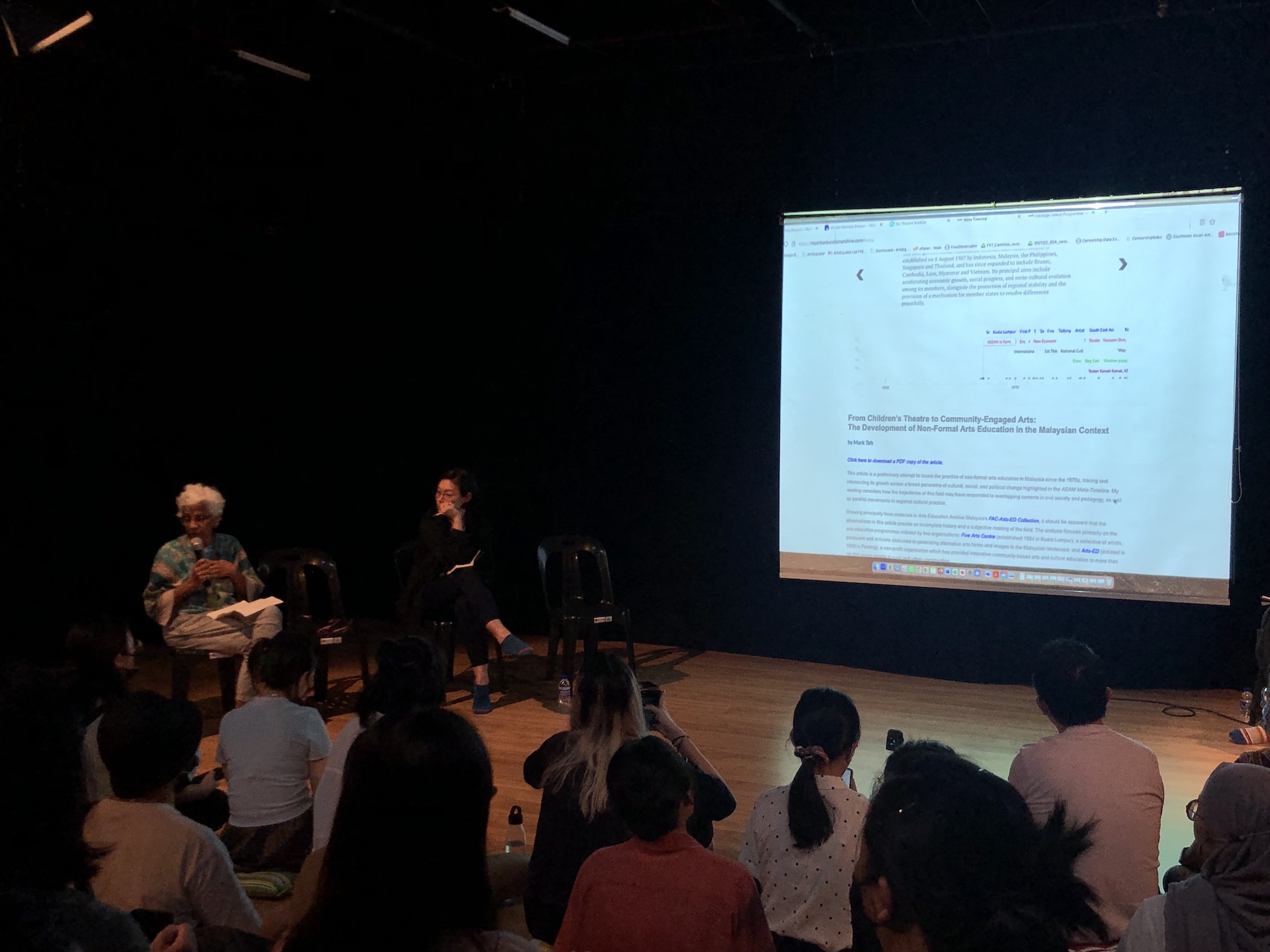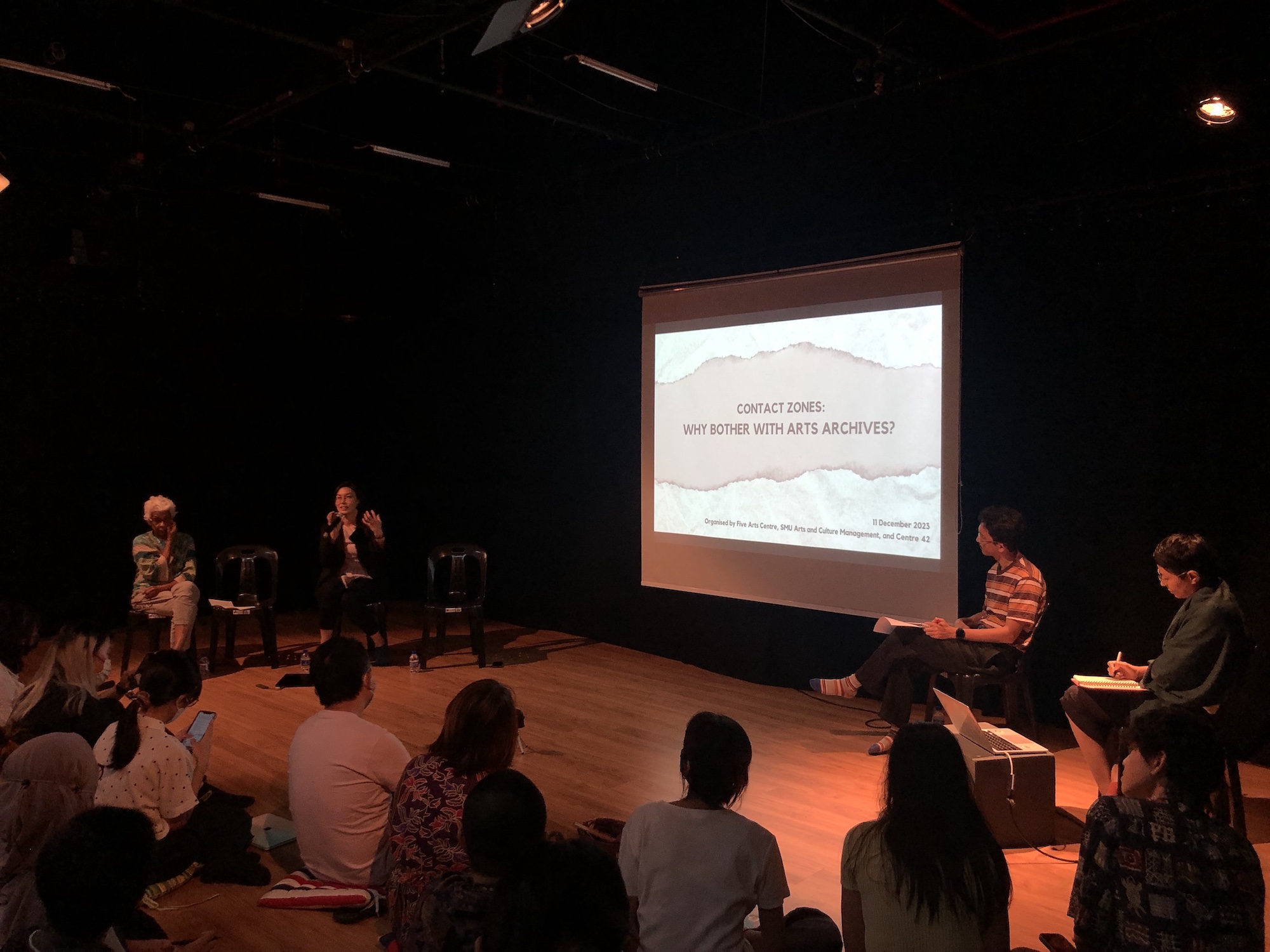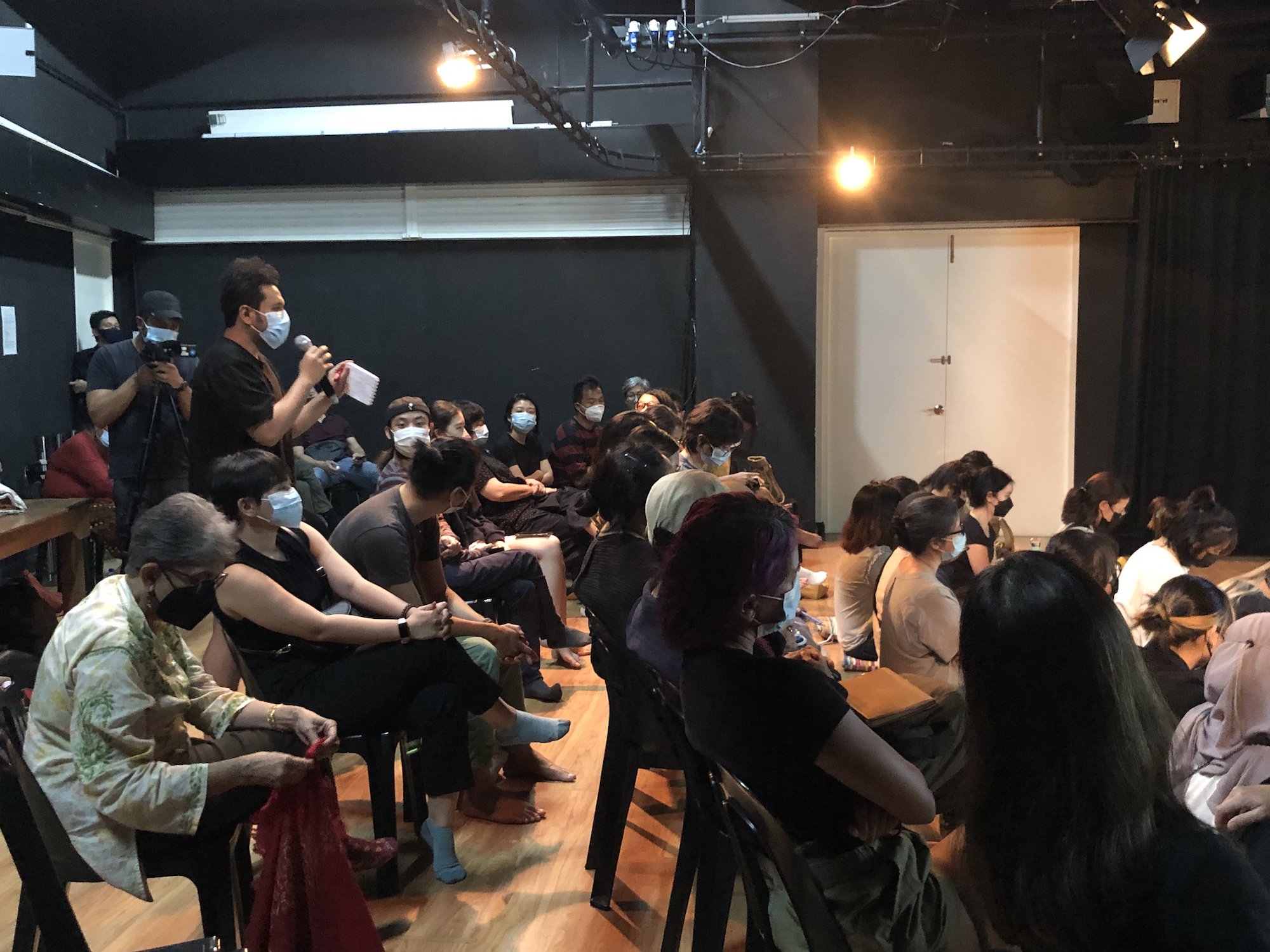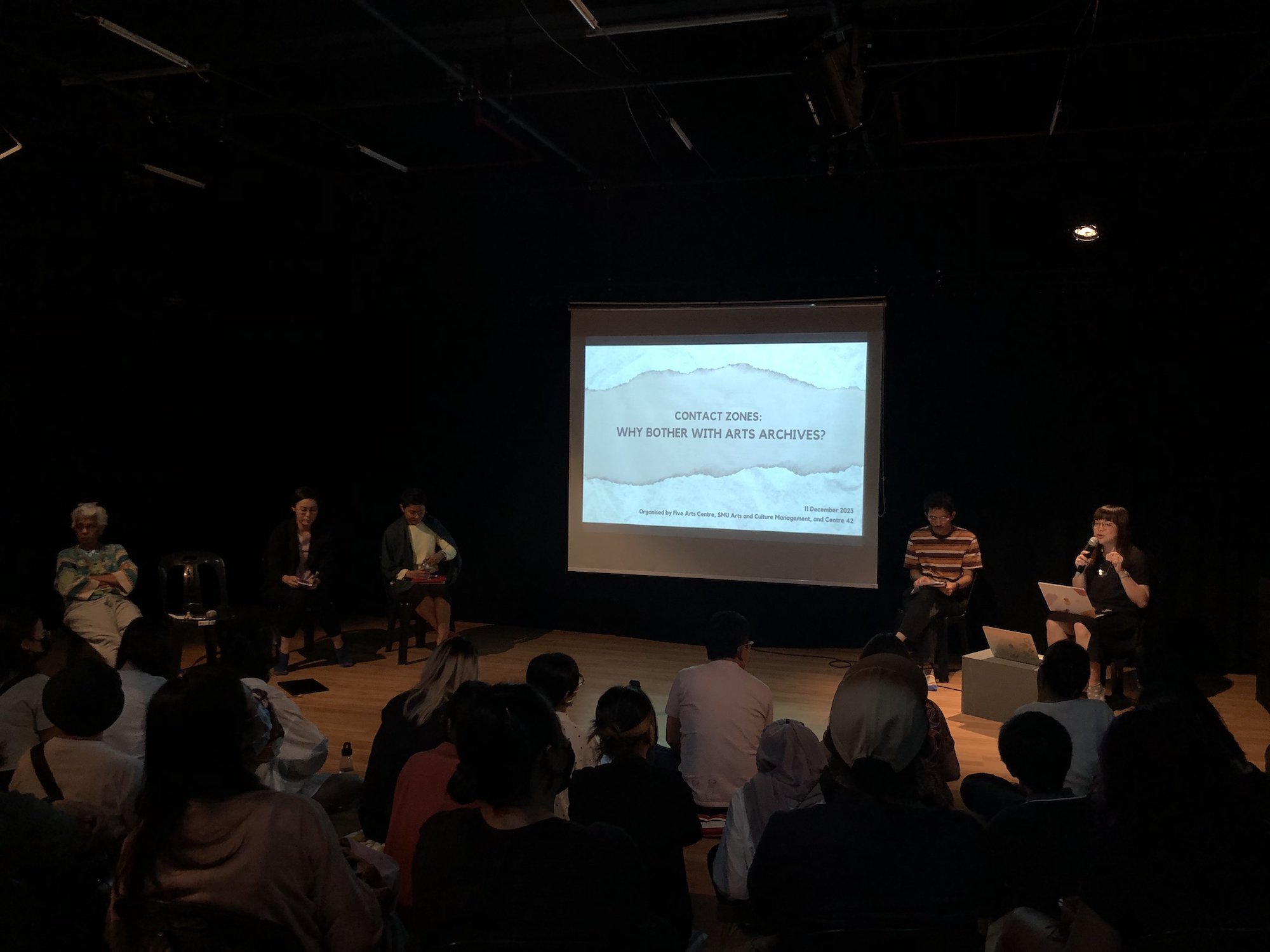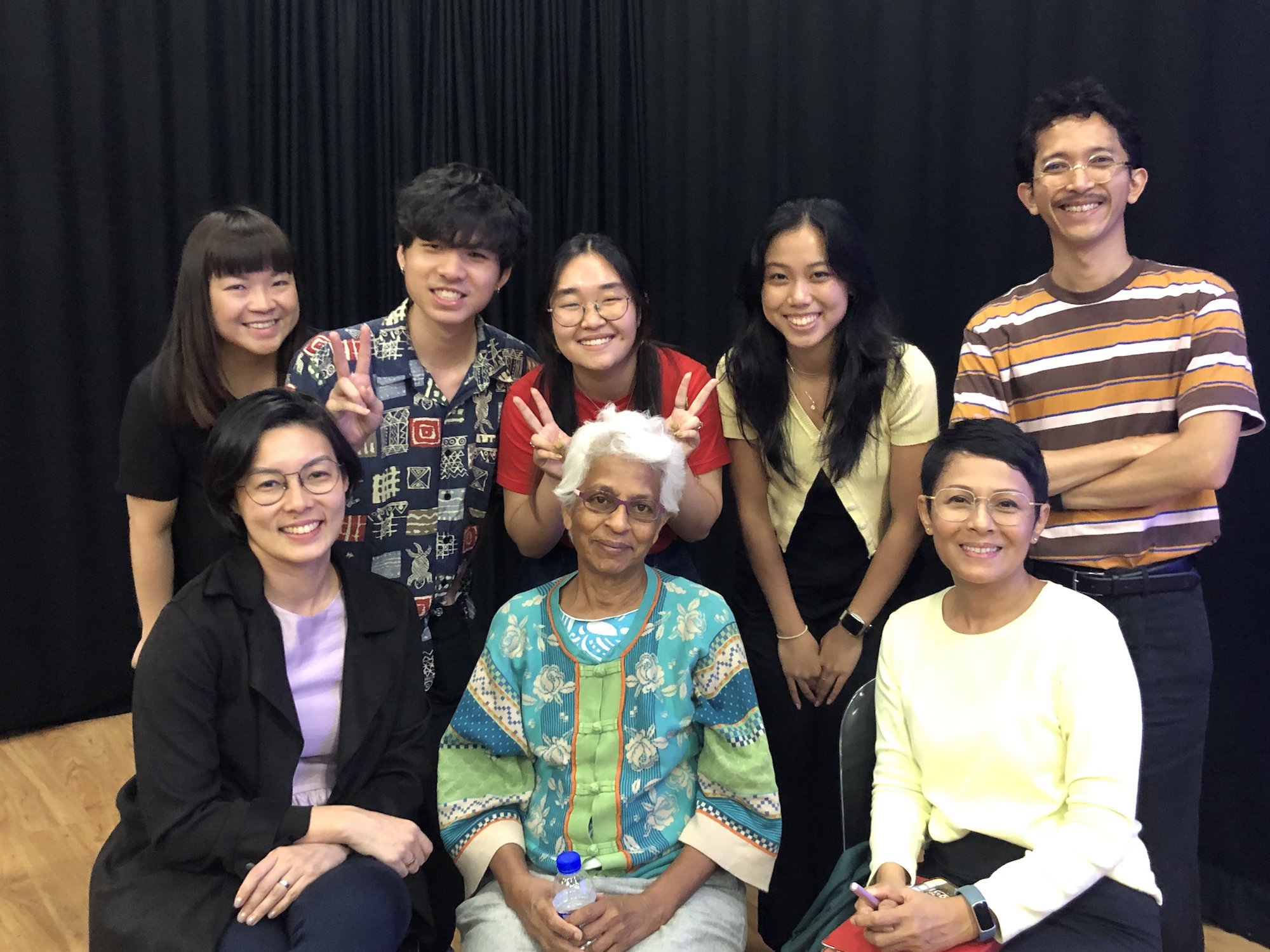Arts archives do more than simply document what has passed. They also remind us how society has changed, and how our art worlds have evolved into what they are today. An arts archive can tell us more if we allow it to, and if we work to create archives in ways that are purpose-led and relevant.
Yet arts archives are facing pressing challenges, including access, visibility, long-term storage and costs. There are also questions about ownership, agency, temporalities and representation. In light of these challenges and questions, are arts archives still worth the effort?
Join us to hear more about the various endeavours to develop and sustain arts archives in Malaysia and Singapore, as we critically consider the relevance and future of arts archives, especially in the context of Southeast Asia.
This panel discussion is co-organised by Five Arts Centre, Arts and Culture Management Programme at Singapore Management University (SMU-ACM) and Centre 42. As a prompt to consider the possible futures of archives, on display will be posters documenting cross-border collaborations between Singapore and Malaysia created by the SMU-ACM students.
